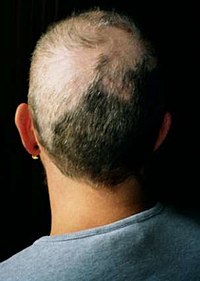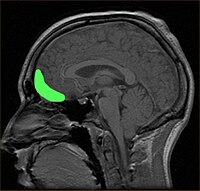
Predictors of individual variation in reversal learning performance in three-spined sticklebacks
Sign Up to like & getrecommendations! Published in 2020 at "Animal Cognition"
DOI: 10.1007/s10071-020-01399-8
Abstract: Behavioral flexibility is a type of phenotypic plasticity that can influence how animals cope with environmental change and is often measured with a reversal learning paradigm. The goal of this study was to understand why… read more here.
Keywords: variation; learning performance; reversal learning; flexibility ... See more keywords

Age- and sex-dependent effects of methamphetamine on cognitive flexibility and 5-HT2C receptor localization in the orbitofrontal cortex of Sprague-Dawley rats
Sign Up to like & getrecommendations! Published in 2018 at "Behavioural Brain Research"
DOI: 10.1016/j.bbr.2018.04.047
Abstract: HighlightsDrug‐induced neuroadaptations and cognitive impairment depend on age and sex.Methamphetamine self‐administration impairs reversal learning in adolescent females.Methamphetamine self‐administration changes 5‐HT2CR localization in adult males.Reversal learning deficits and 5‐HT2CR expression changes manifest independently. Abstract Adolescents and… read more here.
Keywords: age sex; localization; ht2c; reversal learning ... See more keywords

Distinct patterns of abnormal lateral orbitofrontal cortex activity during compulsive grooming and reversal learning normalize after fluoxetine
Sign Up to like & getrecommendations! Published in 2021 at "Biological psychiatry"
DOI: 10.1016/j.biopsych.2021.11.018
Abstract: BACKGROUND Patients with obsessive-compulsive disorder (OCD) display disrupted performance and abnormal lateral orbitofrontal cortex (LOFC) activity during reversal learning tasks. However, it is unknown whether compulsions and reversal learning deficits share a common neural substrate.… read more here.
Keywords: compulsive grooming; fluoxetine; grooming reversal; reversal learning ... See more keywords

Early Life Stress Drives Sex-Selective Impairment in Reversal Learning by Affecting Parvalbumin Interneurons in Orbitofrontal Cortex of Mice
Sign Up to like & getrecommendations! Published in 2018 at "Cell reports"
DOI: 10.1016/j.celrep.2018.11.010
Abstract: SUMMARY Poverty, displacement, and parental stress represent potent sources of early life stress (ELS). Stress disproportionately affects females, who are at increased risk for stress-related pathologies associated with cognitive impairment. Mechanisms underlying stress-associated cognitive impairment… read more here.
Keywords: life stress; early life; stress; impairment ... See more keywords

The interactive effect of valence and context on reversal learning in individuals with Parkinson’s disease
Sign Up to like & getrecommendations! Published in 2019 at "Neuroscience Letters"
DOI: 10.1016/j.neulet.2018.11.006
Abstract: Cognitive deficits in Parkinson's disease (PD) have increasingly been recognized over the last decade and reversal learning in particular has received a great deal of attention. In a classical reversal-learning paradigm, participants learn to associate… read more here.
Keywords: reversal; learning individuals; context reversal; reversal learning ... See more keywords

Acute vagus nerve stimulation enhances reversal learning in rats
Sign Up to like & getrecommendations! Published in 2021 at "Neurobiology of Learning and Memory"
DOI: 10.1016/j.nlm.2021.107498
Abstract: Cognitive flexibility is a prefrontal cortex-dependent neurocognitive process that enables behavioral adaptation in response to changes in environmental contingencies. Electrical vagus nerve stimulation (VNS) enhances several forms of learning and neuroplasticity, but its effects on… read more here.
Keywords: reversal; vns; nerve stimulation; vagus nerve ... See more keywords

Reversal learning in patients with obsessive-compulsive disorder (OCD) and their unaffected relatives: Is orbitofrontal dysfunction an endophenotype of OCD?
Sign Up to like & getrecommendations! Published in 2017 at "Psychiatry Research"
DOI: 10.1016/j.psychres.2017.03.001
Abstract: It has been suggested that reversal learning deficits might be an endophenotype of OCD. To investigate this hypothesis, we administered a probabilistic reversal learning task (ProbRev) to OCD patients, their unaffected first-degree relatives, and healthy… read more here.
Keywords: endophenotype ocd; patients obsessive; learning patients; reversal learning ... See more keywords

Reward learning deficits in Parkinson's disease depend on depression
Sign Up to like & getrecommendations! Published in 2017 at "Psychological Medicine"
DOI: 10.1017/s0033291717000769
Abstract: Background Depression is one of the most common and debilitating non-motor symptoms of Parkinson's disease (PD). The neurocognitive mechanisms underlying depression in PD are unclear and treatment is often suboptimal. Methods We investigated the role… read more here.
Keywords: depression; reversal learning; reward learning; parkinson disease ... See more keywords

Serotonin depletion impairs both Pavlovian and instrumental reversal learning in healthy humans
Sign Up to like & getrecommendations! Published in 2021 at "Molecular Psychiatry"
DOI: 10.1038/s41380-021-01240-9
Abstract: Serotonin is involved in updating responses to changing environmental circumstances. Optimising behaviour to maximise reward and minimise punishment may require shifting strategies upon encountering new situations. Likewise, autonomic responses to threats are critical for survival… read more here.
Keywords: serotonin depletion; reversal; depletion impairs; reversal learning ... See more keywords

Investigating the computational underpinnings of addiction
Sign Up to like & getrecommendations! Published in 2019 at "Neuropsychopharmacology"
DOI: 10.1038/s41386-019-0412-x
Abstract: Addiction is associated with inflexible, rigid decision making that may, in part, underlie the compulsive patterns of drug use that are characteristic of the disorder. One of the most widely used laboratory tasks for quantifying… read more here.
Keywords: addiction; drug; choice; reversal learning ... See more keywords

A cross-species assessment of behavioral flexibility in compulsive disorders
Sign Up to like & getrecommendations! Published in 2021 at "Communications Biology"
DOI: 10.1038/s42003-020-01611-y
Abstract: Lack of behavioral flexibility has been proposed as one underlying cause of compulsions, defined as repetitive behaviors performed through rigid rituals. However, experimental evidence has proven inconsistent across human and animal models of compulsive-like behavior.… read more here.
Keywords: behavioral flexibility; cross species; flexibility; species assessment ... See more keywords